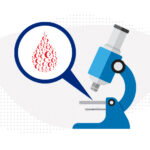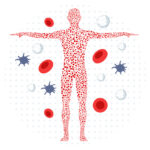PK deficiency clinical trial: Jim’s volleyball ace
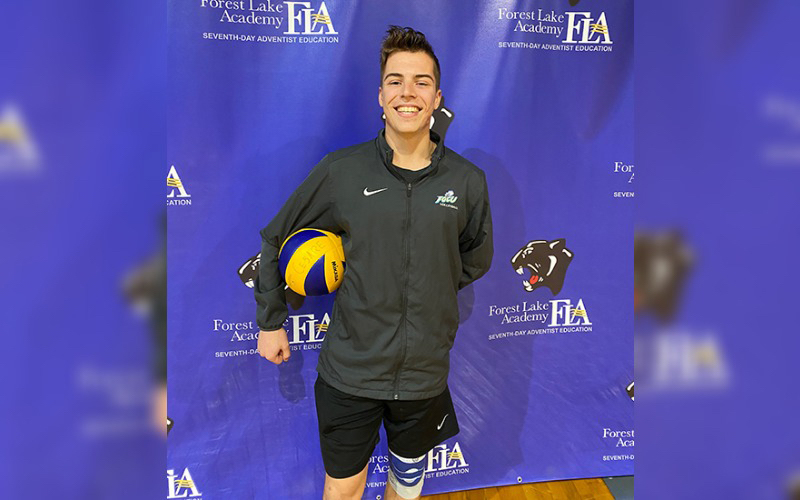
Growing up with pyruvate kinase deficiency (PK deficiency) wasn’t always the easiest thing, but it was my reality. My visits to Dana-Farber/Boston Children’s Cancer and Blood Disorders Center helped give me perspective — although my condition was difficult to deal with, it certainly was not the worst condition I could have. It made me grateful that I could still live a pretty normal life and pursue my dreams without many limitations.
I was just tired a lot. Getting transfused monthly became routine. Back in 2008, I remember I would pack up my Nintendo Wii and play to my heart’s content all day. I made the best of it. Eventually, stopping the premature hemolysis (destruction of red blood cells) that was occurring involved the removal of an organ — my spleen! It had become enlarged from all the red blood cell transfusions and threatened to burst, which is why I was never able to participate in contact sports. This was a blessing in a sense, because it helped me find and fall in love with volleyball, but more on that later.
My splenectomy was my first ever major surgery, so it was a bit nerve racking but also exciting. I loved the attention, and having my whole family travel from New York to Boston to be with me was quite the experience, along with the balloons and gifts.
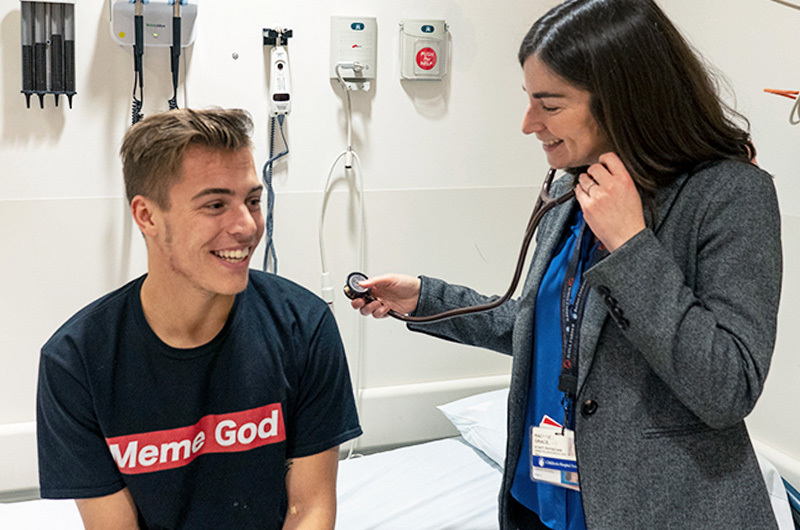
A clinical trial
In November of 2018, I began a clinical trial with a study drug, hoping to reduce fatigue and improve other symptoms related to PK deficiency. Of course, I was a bit apprehensive beginning this new medication. I worried about the side effects and traveling to Boston so frequently from college in Fort Meyers, Florida, but the good news was no side effects! The bad news was that I was on a placebo for the first six months of the trial.
Once I began the actual drug though, I started to feel better, more energetic and livelier. Eventually, I was put on the highest dosage available and I definitely feel less fatigued during the day and more apt to do things I loved, and do them well.
Where I am now
It’s been four months since the actual study was completed, and now I’m on the extended trial. I still take the medication as frequently as I did before, I just don’t have to go to Boston every other week. The medication is still making me feel better, combined with other self-care methods, such as eating right, hydrating, getting enough sleep, and exercising often. I feel as if the drug has helped improve my overall life and energy levels, but I have also come to learn that drugs only help you as much as you’re willing to help yourself.
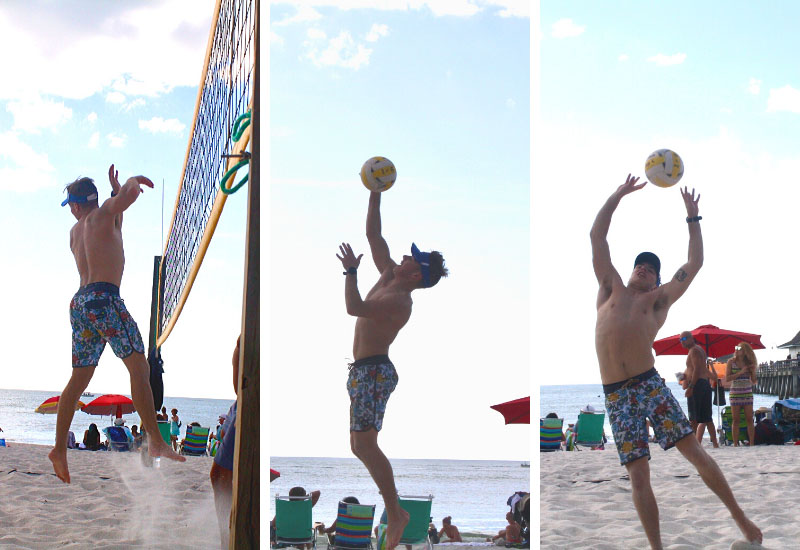
Now that I’m less tired and feeling more energetic throughout each day, I’ve been able to pursue my passion of beach volleyball in Florida, with the hope of making it on the pro tour one day. Volleyball is the one thing that seems to continually provide me happiness, so I’m really grateful to have the opportunity to have the energy to play almost every day — and on the beach too!
I’m also very fortunate for the care I’ve received throughout my time at Boston Children’s with a very caring hematologist, Dr. Rachael Grace, and the fantastic research team who supports her. They really made the overall trial process easier and much more enjoyable.
I feel better than I ever have in my entire life, partly because of the drug trial, but also because I keep trying to live the best life I can. I believe you can always feel better as long as you keep the right mindset, be grateful for what you do have, and continue striving for better. If you keep trying, an opportunity will always present itself, just take a leap of faith.
PK deficiency: A historical perspective
Dr. David Nathan, president emeritus of Dana-Farber Cancer Institute and physician-in-chief emeritus of Boston Children’s Hospital, was first introduced to PK deficiency in the 1960s, when he caught the attention of Dr. Louis K. Diamond from Boston Children’s.
Known as the father of pediatric hematology, Dr. Diamond was interested in Nathan’s training in the then-novel use of radioisotopes, “very useful in determining whether patients with certain red cell disorders would benefit from splenectomy,” explains Dr. Nathan.
He was asked to consult on one of Dr. Diamond’s patients, a 3-year-old boy with severe anemia who had been splenectomized. Although his hemoglobin stabilized, his young red cells in the peripheral blood (reticulocytes) went way up. Dr. Diamond wanted to know how this child was different from those with hereditary spherocytosis, the main congenital anemia, for which splenectomy is a classic cure.
Meanwhile, a hematologist in California, reported in the New England Journal of Medicine (NEJM) that he had a patient with a nonspherocytic hemolytic anemia who had a deficiency in a key enzyme in the red cells — pyruvate kinase.
“Dr. Diamond immediately thought, that’s what my patient has,” says Dr. Nathan.
Through a close collaboration with the late Dr. Frank Oski, and a lot of laboratory work, Dr. Nathan showed Diamond was, in fact, correct — his patient was the second to be identified with pyruvate kinase deficiency worldwide. Their findings about the patient and red cell abnormalities observed in PK deficiency were recorded in NEJM in 1964 and 1965, respectively.
When Dr. Diamond retired, Dr. Nathan took over the Boston Children’s Hematology Division, working closely with pediatric hematologist Dr. Bill Mentzer, “looking into the real mechanism of this condition,” says Dr. Nathan. The two published a paper in the Journal of Clinical Investigation, considered a classic in the field, showing the role of the spleen in PK deficiency.
“That was my biggest contribution…to explain why splenectomy is effective,” says Nathan. “It helped to define the nature of the disorder. The shortage of ATP causes the red cells to lose potassium and water, and they become little dried out prunes in the spleen. They’re so sick when they get out of the spleen, they’re destroyed in the liver.”
Later, Agios came along, a company that makes anti-cancer drugs. They saw a way to apply their technology to the pyruvate kinase problem. The company was starting to make drugs that would land on the mutated protein and reactivate it, changing its shape back to normal.
“That’s when Rachael Grace got involved with them, because once they could show they could change the function, they had to find out whether it would work in a clinical trial. And Rachel is now sort of Ms. Pyruvate Kinase.”
Learn more about the Dana-Farber/Boston Children’s Cancer and Blood Disorders Center.
Related Posts :
-

Blood donations help Kit manage Diamond-Blackfan anemia — so she can dance, sing, and enjoy life
Every month, Kit Murdoch needs a blood transfusion to stay alive. The 2-year-old has Diamond-Blackfan anemia, a rare ...
-

Sickle cell gene therapy and boosting fetal hemoglobin: A 75-year history
Ed. Note: This post updates an earlier post from 2018. In a landmark decision today, the Food and Drug Administration (FDA) ...
-

The clot thickens: Kellie Machlus, PhD
Part of an ongoing series profiling researchers at Boston Children’s Hospital. Platelets are the bandages of our blood, forming ...
-

Could we make blood anywhere in the body?
Our bodies make blood in a specialized niche — a “nursery” within our bone marrow that nurtures blood stem cells so ...



